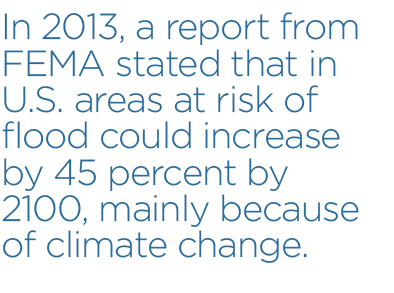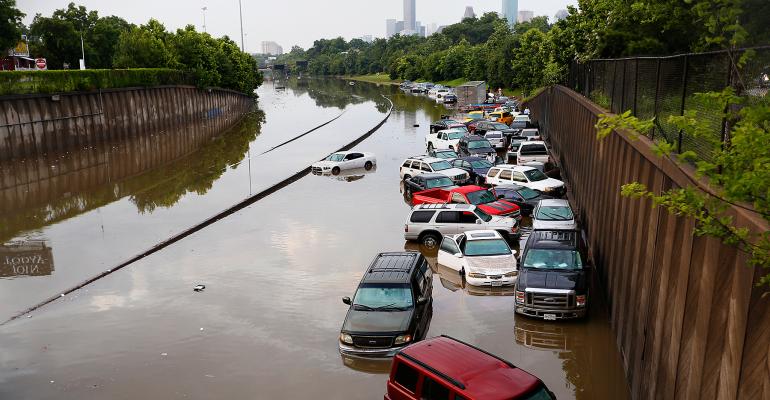Droughts in the West, floods in Texas, tornadoes in the Midwest and increasing severity of storms along the East Coast and in the South are all evidence that climate change—whatever the cause—is real, and will have lasting effects on owners, investors and lenders of commercial real estate throughout the U.S.
The effect of climate change on due diligence is a unique one and can impact a few different aspects of real estate. Certainly as situations develop, conservation measures may be put into place in regional markets or at the state and federal level that may impact a property owner’s responsibility.
As a buyer, an investor needs to be aware of the current state of affairs and impending changes, but some cannot be predicted that far in advance. There are many studies that predict climate change, rising or declining average annual temperatures, rising sea levels, and other effects of global warming and climatological cycles, but how these changes manifest themselves globally can vary widely.
For example, we have seen the Federal Emergency Management Agency (FEMA) rezone parts of Lower Manhattan and the surrounding New York City boroughs in the wake of storm surge effects during Hurricane Sandy, largely driven by insurance claims and concerns over rising sea levels in the Northeast. The impacts on new construction, development potential, design requirements for flood protection and insurance in this market are real, and certainly required adjustment to the due diligence process.
For commercial properties, the new regulations call on owners and developers to reduce greenhouse gas emissions, and have led to changes regarding location of vital equipment such as electrical connections and back-up generators that were susceptible to basement flooding.
 While the debate as to the causes of climate change and what should be done about them continue among politicians, scientists and environmentalists, many municipal governments have already taken decisive actions, including new building code policies designed to safeguard against cataclysmic events such as hurricanes and tornadoes. Some environmentally conscious owners have already made strides in conserving energy and reducing emissions at their properties at considerable expense.
While the debate as to the causes of climate change and what should be done about them continue among politicians, scientists and environmentalists, many municipal governments have already taken decisive actions, including new building code policies designed to safeguard against cataclysmic events such as hurricanes and tornadoes. Some environmentally conscious owners have already made strides in conserving energy and reducing emissions at their properties at considerable expense.
As industry and government leaders work to mitigate environmental losses, the landscape of the commercial real estate market is changing. A coalition of government and business leaders recently released a report, “Risky Business: the Economic Risks of Climate Change in the United States,” examining the economic impact of climate change in the next century using the best available scientific and economic data.
The report concludes that between $66 billion and $106 billion worth of existing coastal property will be below sea level by 2050. In 2013, a report from FEMA stated that in U.S. areas at risk of flood could increase by 45 percent by 2100, mainly because of climate change.
But rising sea levels and flooding are just one aspect of climate change that may impact the commercial real estate marketplace. Drought is just as financially devastating.
A state of emergency has been declared in California, placing restrictions on water usage that are having serious effects on commercial real estate operation, management and development. The prolonged drought has increased risk of wildfires considerably, and halted the development of more than a few projects. These increased risks have led to considerable increases in insurance premiums for affected properties, which directly affect the value of the underlying real estate.
Commercial real estate professionals and their due diligence providers need to stay abreast of these new local municipal environmental requirements to stay ahead of the competition as the market continues to recognize the importance of the impacts from climate change. Buyers should look for investments that have contingency plans to mitigate disruptions from climate change and address the need to conform to stricter environmental regulation in the future.

